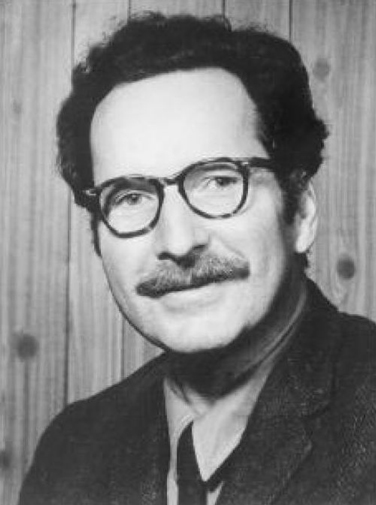The views expressed in our content reflect individual perspectives and do not represent the authoritative views of the Baha'i Faith.
Have you ever noticed that people who believe in a life after this one generally tend to be happier than those who don’t?
Strangely enough, this has something to do with a relatively new psychological premise called Terror Management Theory, or TMT. TMT has nothing to do with terrorism—instead, it focuses on the one basic human psychological conflict common to everyone. We all have a strong desire to live, but we know we’re going to die. This fundamental conflict produces terror in our hearts and souls.
TMT, first recognized and named by the social psychologists Jeff Greenberg, Tom Pyszczynski and Sheldon Solomon, only occurs in us humans. No other living being can recognize its own impending physical death, and then contemplate what happens next. Only we have that unique distinction. The experts call it mortality salience, an existential anxiety brought on by the fear of our own extinction.
That’s the core human dilemma—our self-consciousness makes us aware that our self-consciousness may one day cease.

Ernest Becker
So how do we manage this prospect, so fraught with terror? According to the scientists, and to writers and social anthropologists like Ernest Becker, who wrote the Pulitzer Prize-winning book The Denial of Death, we manage our TMT by creating culture. Our cultures—symbolic systems that give life meaning through participation in something larger and more lasting than any individual—help us symbolically manage the terror of death by allowing us to take part in that which endeavors to endure.
No one, the TMT psychologists say, can go through life tormented by a constant, permanent fear of death—so we build our civilizations and cultures as “immortality projects,” a term that Becker coined to describe our efforts to face the inevitable. We attempt to transcend death by creating something permanent, by leaving something behind that will last forever. With fame, family or fortune, we seek to deny death itself. Most human actions, Becker concluded, try to circumvent, ignore or avoid our profound subconscious anxieties about dying.
The ultimate way to deal with TMT, of course, involves a strong belief in an afterlife. That essentially religious principle (although polls show that at least a third of all atheists and agnostics believe in an afterlife, too) makes for happier, less anxious and troubled people. Every survey affirms that conclusion: no matter what religion, those who have a sense of certitude about their immortality lead happier lives.
The Baha’i teachings reaffirm human immortality, and reassure us that this physical life precedes an eternal afterlife:
If in these visible days and in this present world conditions contrary to your wish appear from the Realm of Decree be ye not depressed for happy and divine days shall come and spiritual worlds of holiness shall be manifest. – Abdu’l-Baha, Star of the West, Volume 8, p. 40.
Be not grieved, be not disconsolate, be not depressed and do not lament, for this world is a mortal abode and we shall all be transferred from this world to another. – Abdu’l-Baha, Star of the West, Volume 6, p. 342.
Belief in an afterlife diminishes and ultimately destroys the terror of physical death. It gives us hope, faith and a sense of an unending future:
Never lose thy trust in God. Be thou ever hopeful, for the bounties of God never cease to flow upon man. If viewed from one perspective they seem to decrease, but from another they are full and complete. Man is under all conditions immersed in a sea of God’s blessings. Therefore, be thou not hopeless under any circumstances, but rather be firm in thy hope. – Abdu’l-Baha, Selections from the Writings of Abdu’l-Baha, p. 205.
A clear awareness of the continuance of life makes this physical existence not only bearable, but reasonable. It allows us to love freely, without fear. It gives us the freedom to have expansive, enthusiastic and happy lives. It offers us joy, rather than terror:
Sorrow not if, in these days and on this earthly plane, things contrary to your wishes have been ordained and manifested by God, for days of blissful joy, of heavenly delight, are assuredly in store for you. Worlds, holy and spiritually glorious, will be unveiled to your eyes. You are destined by Him, in this world and hereafter, to partake of their benefits, to share in their joys, and to obtain a portion of their sustaining grace. To each and every one of them you will, no doubt, attain. – Baha’u’llah, Gleanings from the Writings of Baha’u’llah, p. 329.
O son of the Supreme! I have made death a messenger of joy to thee. Wherefore dost thou grieve? I made the light to shed on thee its splendor. Why dost thou veil thyself therefrom? – Baha’u’llah, The Hidden Words, p. 11.

















Comments
Sign in or create an account
Continue with Facebookor